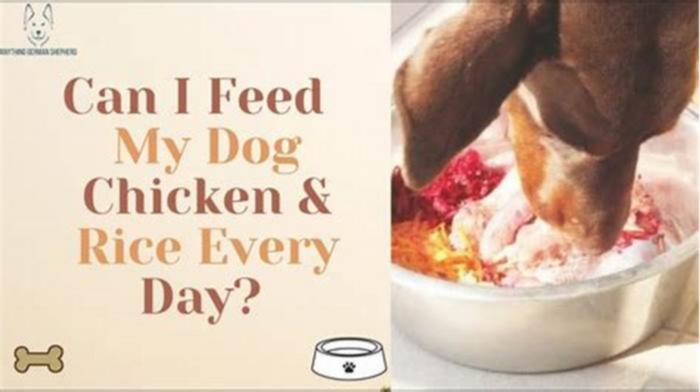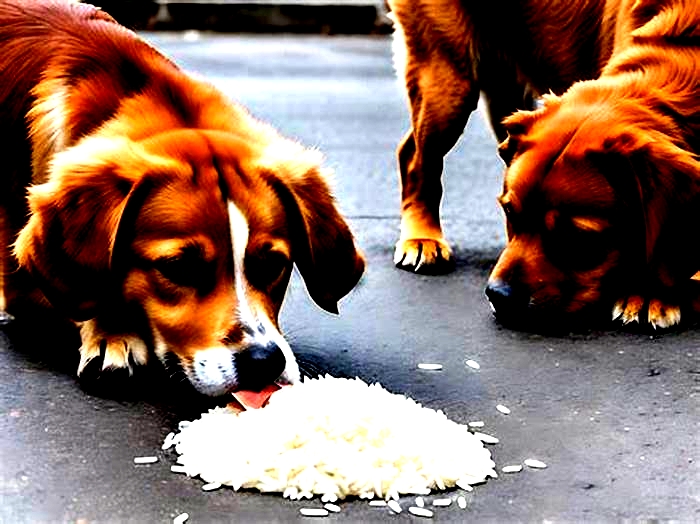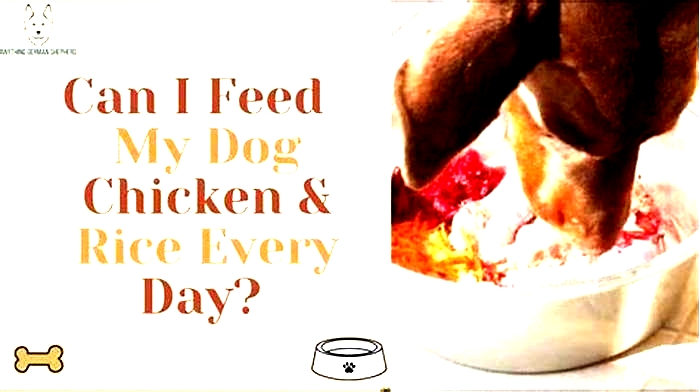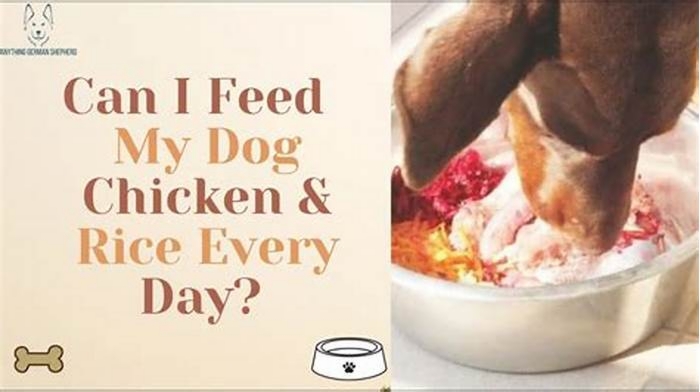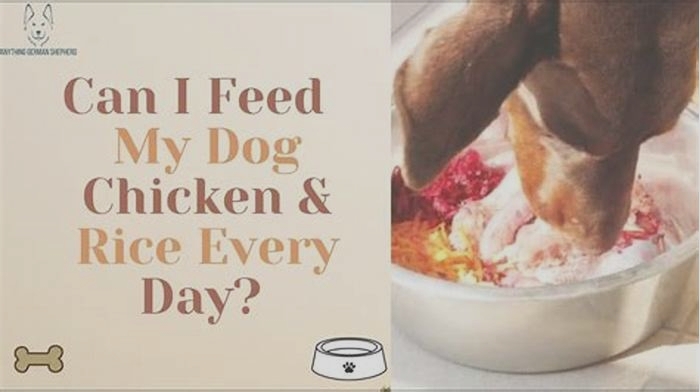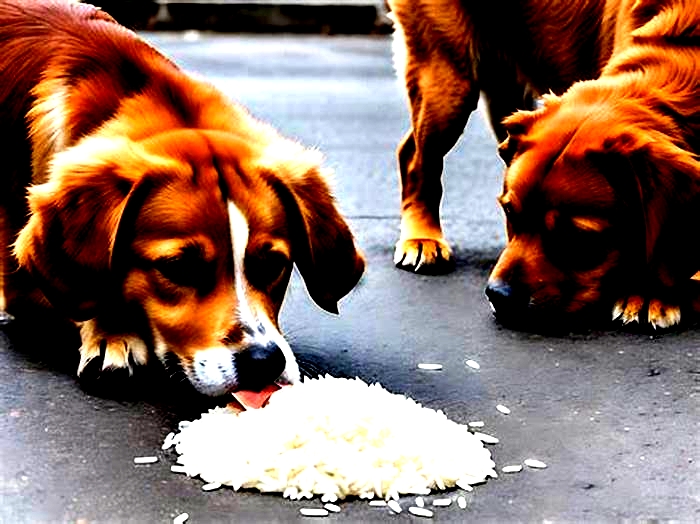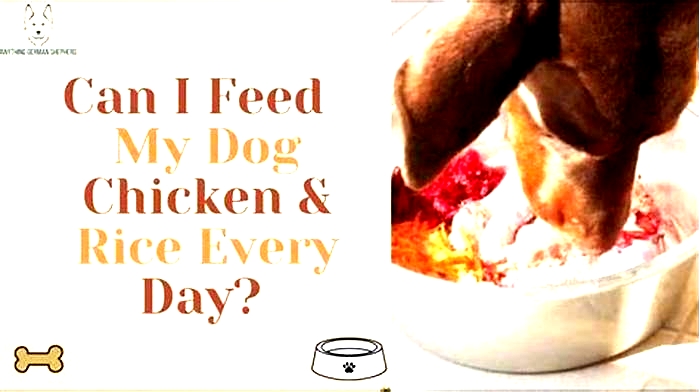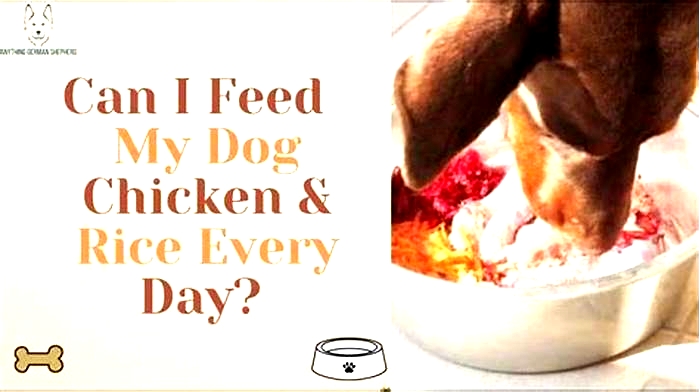Can I feed my dog salmon and rice
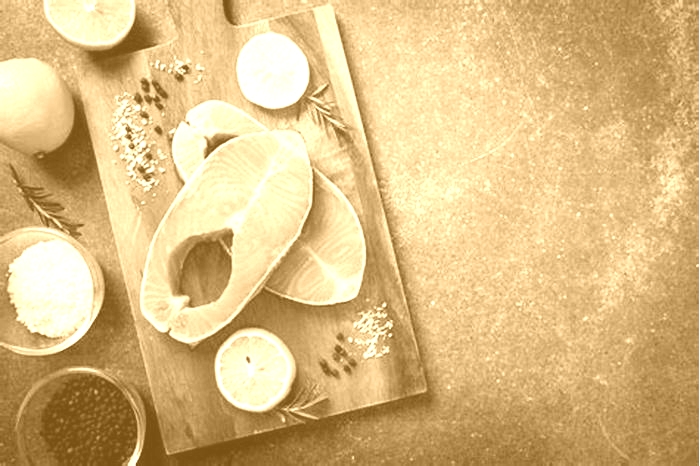
Can Dogs Eat Salmon?

Can Dogs Eat Salmon?
Written by:Dr. Merliza Cabriles
Yes, you can give salmon to your dog provided that it is well-cooked and has been completely deboned. Raw salmon or any other fish or seafood is a total no-go for dogs, because of harmful bacteria and parasites. Salmon is also very high in essential nutrients for dogs. However, there are some important considerations that you should be well aware of before giving some to your pet.
Health benefits of salmon for dogs
The high-quality protein and omega-3 fatty acids in salmon provide various health benefits in dogs, which include the following:
- Brain health and function
- Help boost your dogs immune system
- Reduce inflammation of the joints
- Alleviate symptoms of arthritis
- Help maintain healthy skin and coat
- Helps with joint mobility
- Reduce skin irritations and allergies
- Salmon is also rich in vitamins A, B-complex, and vitamin D, as well as magnesium, potassium, and zinc.
Health risks of salmon for dogs
Harmful bacteria and/or parasites are a real concern when you feed it raw. Salmon can be filled with flukes, a type of parasite that can cause
- Vomiting,
- Diarrhea, and
- Even death in dogs!
In moderation, salmon can contribute to keeping your dog healthy, but make sure its well-cooked to kill all harmful parasites and bacteria which might be present.
Just in case your dog ate raw salmon by accident, dont panic. A small piece wont likely have adverse effects. Just be on the lookout for digestive upsets, vomiting or diarrhea.

Salmon poisoning disease (SPD) in dogs
This is a fatal condition that can occur when a dog eats raw salmon that contains the parasite,Neorickettsiahelminthoeca. Once the parasite reaches the dogs small intestine, it causes hemorrhaging and gradually invades the entire body.
Important symptoms that you should watch out for include:
- Vomiting
- Diarrhea
- Fever
- Eye and nose discharge
- Swollen lymph nodes
If you see any of these signs in your dog it is a good idea to call your veterinarian.
How about dogs and seafood allergies?
Salmon is actually good for dogs with allergies because they are rich in omega fatty acids that can also promote skin and coat health.
How about canned salmon and dogs?
You can give canned salmon to your dog but be sure to choose salmon in water and avoid those that contain brine or oil, because the salt and oil can be harmful to your dog. You dont have to remove the bones in canned salmon because these can usually be eaten. If you want to be on the safe side, however, you can remove those as well of course.
Can dogs eatsalmonskin?
Salmon skin is very high in fats, so you better remove it. If your dog ate some, there is no need to worry about it, but it is recommended to keep a close eye on your dog in case he suffers from digestive upsets.
Can dogs eat smoked salmon?
Never give smoked salmon to your dog because it is cured using ingredients, especially salt, that is harmful to your dog. Smoked salmon may also contain parasites which can cause a fatal condition in dogs.
Can puppies eat salmon?
Cooked or tinned salmon may be offered to puppies as an occasional treat.
Preparing salmon for your dog
Using virgin olive oil or vegetable oil when cooking salmon can further boost the nutritional benefits of the dish. Make sure that its well done; in fact, overcooking is better than raw when it comes to feeding salmon to dogs. It is also a good idea to remove the fish skin because it is very high in fats.
Asgarliccan be very harmful to dogsandonions are also a real threat to dogs, make sure not to use any of those substances when you prepare it at least for your dog!Dogs can eat tunaand sardines as well, which are also rich in omega-3 fatty acids.

Did we miss anything? Please help us improve and share your thoughts in the comments!
Can Dogs Eat Salmon?
NOTE: Always check with your veterinarian first before giving your dog any new foods, especially people foods. What might be OK for one dog might not be good for your dog, depending on multiple factors, such as their age, health history, health conditions, and diet. Dogs on prescription diets should not be fed any food or treats outside the diet.
Does your pooch have a penchant for fish? Many dogs like the taste and smell of seafood, but its important to understand the benefitsand possible risksanytime you consider adding a new ingredient to their diet.
Thankfully, when it comes to cooked salmon, your dog is safe. Salmon is a popular ingredient in many types of commercial dog food and is also OK for your dog to eat as a food topper or tasty treat. As with any new food, youll want to be careful not to feed your dog too much salmon to start, and be sure to watch out for any extra ingredients that might be included in typical human recipes (like butter or seasonings) that can be dangerous for dogs to eat.
Keep reading to find out how to safely prepare salmon for dogs, and when youll want to ask your vet for advice.
Is Salmon Good for Dogs?
Salmon can be a great addition to your dogs diet, and many high-quality dog food brands use salmon as a protein source. Unlike some seafood, such as tuna, the U.S. Food and Drug Administration (FDA) reportsthat salmon contains very low levels of mercury.
So, adding a little cooked, plain salmon to your dogs bowl can be a great way to give them an extra boost of flavor and nutrition. A few nutritional benefits of feeding your dog salmon include:
- Omega-3 fatty acids: Salmon is a great source of omega-3s, which are good for dogs skin and coat health, and can even improve mobility for dogs with joint issues or other inflammatory diseases.
- Protein: In addition to being an excellent source of healthy fats, salmon is also a good source of protein, which helps your pooch build and repair muscle tissue. There are many high-quality dog foods that use salmon as a main source of protein, which can be a great option for dogs who have allergies to other proteins like chicken, beef, or lamb.
- Vitamins and minerals: Salmon is also a good source of B vitamins. One important nutrient thats critical for keeping your dogs brain and nervous system healthy is vitamin B12, and salmon is rich in B12.
Just be sure to check with your vet before making any major changes to your dogs diet, especially if your dog has any health conditions or sensitivities.
Can Dogs Eat Salmon Raw?
Even with all the health benefits of salmon for dogs, pet parents should be cautious about feeding their pooch raw or undercooked salmon. Feeding your dog uncooked salmon can make them very sick. Raw and undercooked salmon can contain a parasite known to cause salmon poisoning disease, which can be fatal for dogs if left untreated. So sorry, sushi-sniffing hounds! Baked, broiled, grilled, and boiled fish are all much safer options for dogs to eat.
If your dog does get ahold of raw salmon or raw fish of any kind, give your vet a call so they can help you determine next steps.
Can Dogs Eat Salmon Skin?
If youve baked a nice salmon dinner but dont care much for the skin, its fine to share that leftover bite with your pooch. Salmon skin is safe for dogs to eat. Just be sure the fish has been thoroughly cooked and isnt seasoned with spices or ingredients that are toxic to dogs (like onions, butter, or garlic).
In fact, that scraping of salmon skin can be a great way to give Fido extra nutrients rather than throwing it into the compost if its not to your taste. Salmon skin actually contains even more of the healthy omega-3 fatty acids than the rest of the fish. So if youre not a fan of the skin, topping off Fidos food dish with a small amount of your leftovers can be a win-win for you both. Just remember to feed your dog salmon skin only in small amounts.
How to Safely Feed Salmon to Your Dog
Salmon is a safe snack for dogs, but that doesnt mean you should grill them an entire fish for dinner tonight! Giving salmon as a treat is a good place to start, and you can gradually increase amounts to let your dogs body adjust to the new food. This can help them avoid adverse effects like an upset stomach or diarrhea, which can happen when your dogs usual menu changes.
Any salmon given to your dog should be fresh, cooked, and free from bones, which pose a choking hazard. Avoid any seasonings or extra ingredients, as many common ingredients are not safe for dogs to consume.
Canned salmon is also OK for dogs to eat, but youll want to watch the sodium. While canned salmon in water is a better choice for dogs than salmon packed in oil, rinse it thoroughly to remove any excess salt or oil from the canning process before adding it to your dogs dish.
How Much Salmon Can Dogs Eat?
Feeding small amounts of fresh, cooked, boneless salmon as an occasional treat is considered safeand even healthyfor dogs. But as with any new food, start slow! Its always best to err on the side of caution when it comes to your dogs health.
Here are some general guidelines for how much salmon is safe for dogs to eat, based on their weight:
- Extra-small dog (220 pounds): 12 ounces of fresh, cooked, boneless salmon per week
- Small dog (2130 pounds): 23 ounces of fresh, cooked, boneless salmon per week
- Medium dogs (3150 pounds): 34 ounces of fresh, cooked, boneless salmon per week
- Large dogs (5190 pounds): 46 ounces of fresh, cooked, boneless salmon per week
- Extra-large dogs (over 90 pounds): 68 ounces of fresh, cooked, boneless salmon per week
Note that these are just general guidelines. Its always best to check with your vet before making major changes to your furry friends food bowl.And remember: Raw seafood can contain harmful bacteria and/or parasites that can cause illness in dogs.
Featured Image: iStock/O_Lypa
Can Dogs Eat Rice?
One of the most popular foods around the world is rice. But can dogs eat rice? The answer is yes. Rice is an ingredient sometimes found in commercial dog foods.
Many pet owners feed white rice to their sick dog. One of the reasons white rice is the chosen grain for a dog with an upset stomach is that its easy to digest, quick to prepare, and low in fiber.
We use rice as a carb source when dogs are on a bland diet after a GI upset, says Dr. Steve Weinberg, DVM and medical director/CEO of 911Vets, a mobile veterinary service in the Los Angeles area. Rice helps to bind the stool in cases of diarrhea.
Is All Rice the Same?
Brown rice is never prescribed for dogs having gastrointestinal issues, such as diarrhea. Ill canine companions need need the starch in white rice. However, white rice has a higher glycemic index than brown rice and can cause blood sugar levels to rise. If your dog is diabetic, you can still feed them a little white rice, if needed, but not on a consistent basis.
Brown rice can be harder for a dog to digest because it is not as processed. Brown rice has a seed coat where the nutrients are stored, explains Dr. Carly Fox, DVM, a staff veterinarian at New York Citys Animal Medical Center. That coat is missing from white rice, resulting in less nutritional content.
Carbohydrates are an important part of a dogs diet, along with a certain amount of protein and fat. Just as with humans, eating too many carbs can lead to weight gain in a dog. Because commercially produced dog food contains carbohydrates, be careful not to overload your pup with additional high-carb foods like rice. As long as your dog is maintaining a healthy weight, adding some rice to your dogs mealsis perfectly fine.
When preparing rice for your pup, boil it in water and do not add any seasonings or spices, which can upset stomachs or even be toxic. Keep it plain and simple; they wont know the difference. And just like with any new food you introduce into your dogs diet, consult your veterinarian first and then start off slowly.

